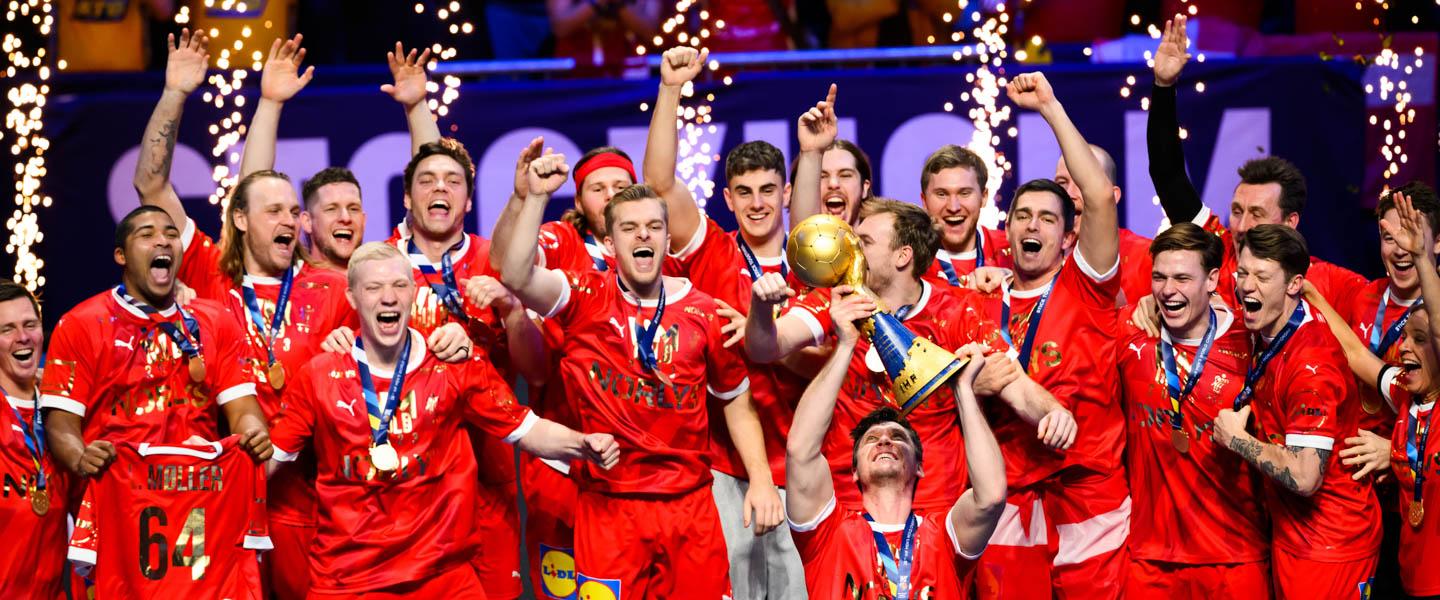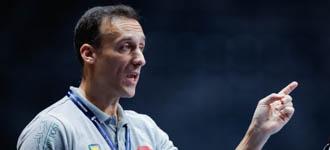Talking points: Analysing the final weekend at Poland/Sweden 2023
30 Jan. 2023

Well, here it is. Denmark retained their title at the IHF Men's World Championship after another flawless performance in a competition they dominated. We know the medallists – Denmark, France and Spain – but what really went on in the final weekend at Poland/Sweden 2023?
We tried to offer some answers, analysing what happened in the last three days of the highest-scoring edition of the IHF Men's World Championship.
The juggernaut setting new records
France and Romania won the IHF Men's World Championship two times in a row twice, but no team managed to seal three trophies in a row. Until Denmark came and swept every opponent they faced over a six-year period, totally dominating the competition in the last three editions. The Scandinavian side delivered excellent performance after excellent performance, constantly regenerating and producing great games whenever they had previously found some great opposition, like in the main round match against Croatia at Poland/Sweden 2023, when Denmark were tied (32:32).
To put everything in perspective, not only Denmark go six years and 28 matches unbeaten at the IHF Men's World Championship, but it might also be eight years until their streak is snapped, as the next opportunity will come for other teams in 2025, when Denmark is co-hosting the event alongside Croatia and Norway. In those 28 matches – a streak which surpassed the previous record set by France of 25 matches in a row without a loss – Denmark have won 26 matches and drawn only two, an astonishing feature while facing the best teams in the world. In the past three editions of the IHF Men's World Championship, Denmark have also been the top attack, scoring an average of 33.1 goals per match, and have an average margin of win in the finals of 5.33 goals per match.
A new fiery generation for Denmark
How did they do it at Poland/Sweden 2023? Well, they mixed experience with the exuberance of youth, and the recipe has proved excellent and impossible to stop. In the past two finals, Mikkel Hansen has scored seven goals each time. This time around? Hansen had only one goal from one shot, a penalty early in the second half. In fact, the three-time MVP played for only 17 minutes in the final against France, being taken out at half-time by Nikolaj Jacobsen, a decision which could have backfired tremendously.
Yet Denmark still relied on their experienced players to bring home the trophy once again. After failing to score one goal in the competition until the final, centre back Rasmus Lauge Schmidt saved his best for last, delivering an excellent 10-goal performance and being unstoppable in the second half by France. However, the plaudits should also go to the two young guns who really carried Denmark throughout the whole tournament.
Right back Mathias Gidsel will only turn 24 in February, but he has already been selected in the All-Star team in all of the four major tournaments he has played in and was also the MVP at Poland/Sweden 2023. Gidsel scored six times in the final, taking his overall tally in the championship to 60 goals and becoming only the 21st player in history to reach that milestone. Another future star is Simon Pytlick, who made his debut in a major tournament here and scored nine goals in the final and 51 goals throughout the competition to earn a place as the All-Star left back. Whatever goes on in Denmark, things are really, really looking good for the future.
France's consistency stays key in their development
For the first time in three editions of the world handball flagship competition, France started with eight wins and failed to win the title after securing the trophy in the previous two instances, when they hosted the competition in 2001 and 2017. It was also only the second final lost from the eight they played, with their record of consistency being somewhat tarnished by the 29:34 loss against Denmark in the final. Make no mistake, though, this France side has some serious potential for the future.
While Nikola Karabatić was nursing an ankle injury and could barely train before the final, scoring eight goals throughout the whole tournament, which could be his last edition of the IHF Men's World Championship, France still have some excellent talent in the pipeline. The silver medal will come as a confirmation of their consistency – they made the quarter-finals in the last 16 consecutive editions of the World Championship – and act as a morale boost for the upcoming Paris 2024 Olympic Games, which they will host. This was also the 12th podium finish at the World Championship for France, tying Sweden for the highest number of medals in the competition.
A new record for scored goals
The previous highest-scoring edition of the IHF Men's World Championship was Germany 2007, when 5325 goals were scored in 92 matches, an average of 57.88 goals per match. That record was beaten at Poland/Sweden 2023, when 6555 goals were scored in 112 matches, an excellent average of 58.52 goals per match, which underlines the change in pace in handball. The new rules – the fast throw-off and the seven-on-six attacks- have changed the sport's face and created a more dynamic and entertaining handball.
There was a new record for the number of goals scored in a bronze medal match, with Spain and Sweden combining for 75 goals, beating the previous record set at Egypt 2021 by 11 goals, while the final between Denmark and France produced the third-highest number of goals in the last act of competition, with the record set at Tunisia 2005 between Spain and Croatia, 40:34, still holding strong.
Sweden fall short, but are still a powerhouse
What about co-hosts Sweden? Their tournament started with a bang, a seven-match winning streak that propelled the Scandinavian side to the semi-finals for the second time in a row. But after the injury suffered by centre back Jim Gottfridsson in the quarter-final against Egypt, everything unravelled. Sweden lost the semi-final against France and then conceded a painful loss by Spain, 36:39, in the bronze-medal match, with Glenn Solberg's side failing in their challenge to clinch a medal.
Over 22,000 fans came to see their favourites in the Tele2 Arena in Stockholm, only to leave disappointed twice, but that does not mean that Sweden are not a true powerhouse. They are still a strong side, sending one player to the All-Star team, right wing Niclas Ekberg, while goalkeepers Andreas Palicka and Tobias Thulin both had excellent tournaments. Yet their game plan focuses so much on Gottfridsson, a player impossible to replace, that his absence took all the air off Sweden.






